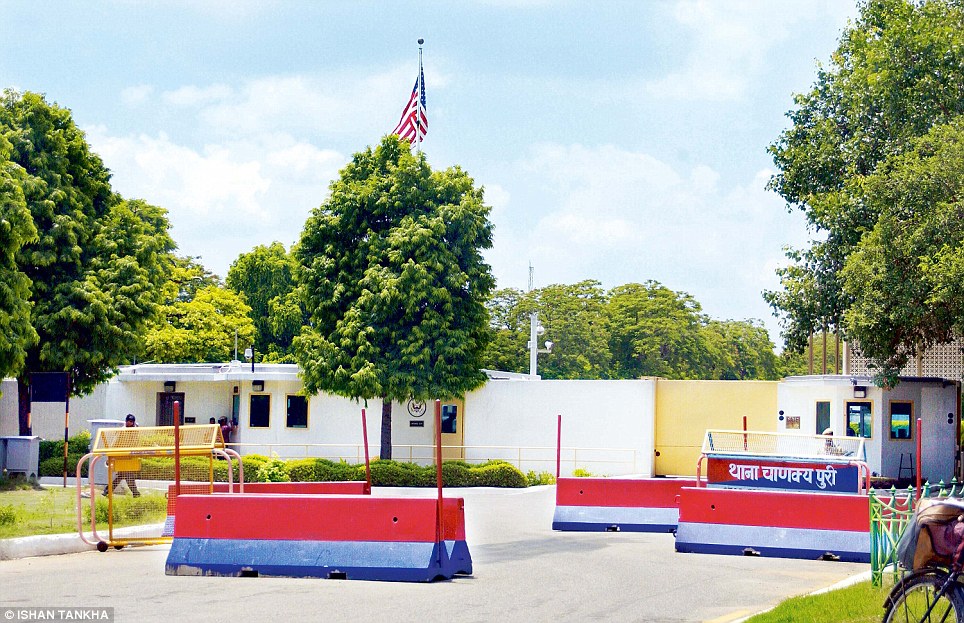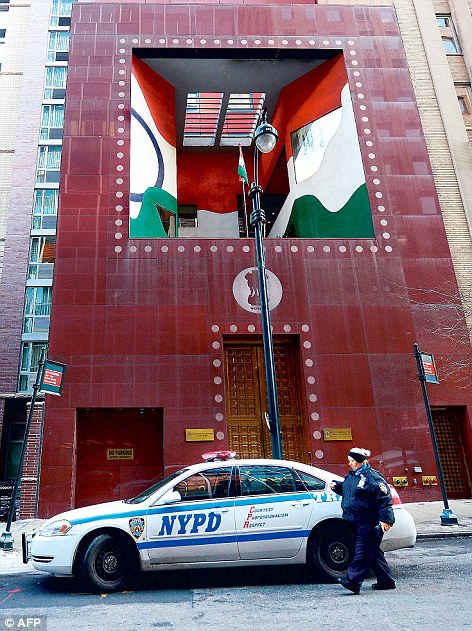Irfan Baloch
SENIOR MODERATOR

- Joined
- Apr 12, 2009
- Messages
- 20,968
- Reaction score
- 214
- Country
- Location
thats a surprise, Indian girls love our men I can understand that. she is not the first or the last one
Follow along with the video below to see how to install our site as a web app on your home screen.
Note: This feature may not be available in some browsers.

thats a surprise, Indian girls love our men I can understand that. she is not the first or the last one

thats a surprise, Indian girls love our men I can understand that. she is not the first or the last one

thats a surprise, Indian girls love our men I can understand that. she is not the first or the last one


you are saying that she violated the u.s law.i am saying that u.s should not keep conditions on certain things.GOI need not peep in to their bed rooms.if a person applies a visa as a companion of some other of same gender we all know what it means and it is illegal even now.she claims that she worked 40 hrs a week.did she provided any proof that she worked so long??just because the maid is staying in her house doesnt mean that she working there..nothing was proved and all those are mere allegations which why she was granted a bail until further investigation takes place.so she must be treated atleast with some respect.she was not going to run away any where.they could have treated her with some respect called her to station and arrested her there if theres any problem.
further the maid agreed too recieve that salary in india and the indian courts are witness to the agreement.and when in u.s she grew overzealous and claimed extra salary.a case is registered against the maid in india .she and her family was happily deported to u.s despite the pending case in india.its the utter disregard the u.s has towards the indian judiciary.when u expect others to respect your law.u must do the same.
this is the diplomat's salary.so u.s is gonna arrest our pm now??
Envoy gets $4,120 per month, US says pay nanny $4,500 - India - DNA

Probably yes, in fact in US our consular staffs salaries are also less than the US minimum wages, but consulates are Indian territories, so US minimum wages law doesn't apply.
Again, if they want to screw you then they can screw you, when the maid is living in your house, how do you prove the maid was working for only maximum 40 hours a week? That maid claimed to be working for 19 hours a day! Probably by deducting 4 hours for sleep and 1 hour for eating, bathing, cleaning, and other personal work, highly unreal.

oh come on... dont be a spoil sport.. let the harmless gossip flow.In fact she is not the one, her husband is not a Pakistani. And certainly we won't send a diplomat to US consulate posting who's husband is a Pakistani.
lair lair pants on fire.. boo hoo to you..HE is an Indian American.......

on the serious note
lets agree that Devyani tried to bypass the system. but her treatment was uncalled for and excessive

That is a problem here of course but why would they strip search her?
I think America really wanted to humiliate India and violate her honor.

It is not a crime by Indian Law, and she has diplomatic immunity from US laws. What part of that do you not understand ?

I guess after having stripped her poor maid of her dignity and freedom they thought the diplomat deserved the same treatment.
The diplomat isn't the victim the maid is.
The poor defenseless domestic worker she bashed around and paid almost nothing to was probably trying to make some money to feed her own family back home. The icing on the cake is this woman ensured that her maid was unable to find work elsewhere in the US by confiscating her passport and paying her so little that she had no savings to fall back on.
This isn't new, in Canada there was an Indian origin politician named Ruby Dhalia who was charged with having abused her two maids as well.
So my question is where is the support for the maid from the Indian community?
Why no compassion for a poor woman who also happens to be Indian or the disgust over how this is referred to as a "minor infraction"? Does she happen to be a dalit unworthy of compassion?
Slavery may be acceptable in India but it's not tolerated in the US and Canada.





HE is an Indian American.......

1.every diplomat deserves to be treated with respect.they are not some random citizens.they represent a countryBy saying that U.S should treat the diplomats differently, you are looking for that 'extra' privilege to be handed over. The same was done here in India to U.S officials and was being revoked on a reciprocal basis now. My position is simple - do not grant anyone US or Indian officials anything beyond what the standard procedures are.
And again the Indian embassy was informed in Sept about the case against Devyani. What did the embassy and MEA do? Sleep on it. Again arrest procedurewise you are expecting a privilege not extended to the common man for her.
Maid is involved in visa fraud as well and that is where I find it amazing on the approach of NY DA though they can have one of the accused as witness in the case as per U.S laws. And moving the family to US was stupidity at best which does not bode well.
Again you are claiming that the diplomat's salary is minimum. How are you arriving at the conclusion? Also note that her salary is tax-exempted and involves other perks as well like housing and car.Though the A category visa clearly states that the other perks should be only a small percentage of the total salary(again the defense put in by many Indians about the maid's salary that she is being provided house and food).
U.S is not going to pull out some no of $4500 from the thin air. I think it is the no quoted in the DS-160 form under the employee salary - the same defense her father started with - i.e that the maid filled the form and today's news - the attorney claims that the U.S authorities made a mistake in misreading the form which is nothing of that sorts which only someone who had filled up the DS-160 form would know. Who knows why Devyani quoted the no - Maybe thinking what difference it is going to make whether I show in the visa paper the minimum wage of $1560 or $4500 except showing $4500 would improve the visa chances for the nanny while on the side I am going to pay $500. And the maid salary is claimed as a separate allowance by her beyond the salary as per the perks. So what difference is it going to make what her salary is?


